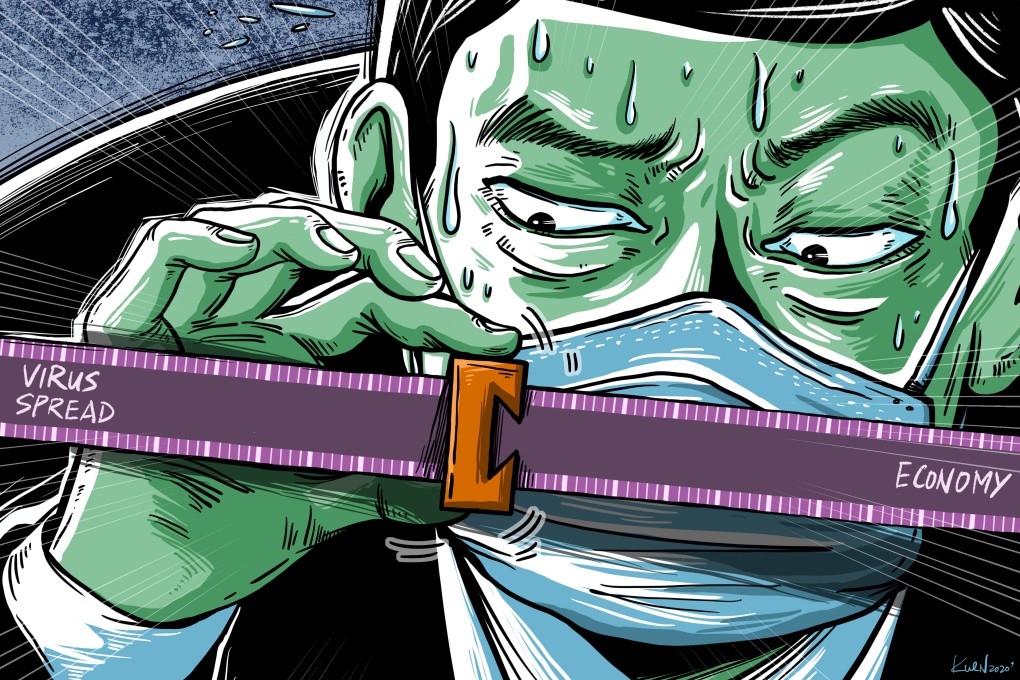China struggles to balance coronavirus containment with economic cost as millions return to work
- Most Chinese companies will resume operations this week, but the coronavirus outbreak is still raging and it’s far from business as usual
- Transport restrictions, supply chain disruptions and new workplace rules to minimise the risk of transmission all cloud the short-term economic outlook

To work or not to work – that is proving a crucial question for Chinese officials, companies and employees as the world’s second largest economy struggles to balance the risk of the deadly coronavirus with the need to resume business.
Most provinces across China restarted operations on Monday after an extended Lunar New Year holiday, but an influx of workers returning from their hometowns is posing a headache for authorities.
While the central government has made it clear that containing the outbreak is an overriding priority, Communist Party leaders know they cannot afford to freeze industrial production indefinitely, especially as China’s economy grows at its slowest pace in decades.
East coast manufacturing hubs like Shanghai, Suzhou and Hangzhou, as well as Shenzhen and Dongguan in the Greater Bay Area, face the most pressure from returning migrant workers, according to Li Xunlei, chief economist at Zhongtai Securities and a government adviser.